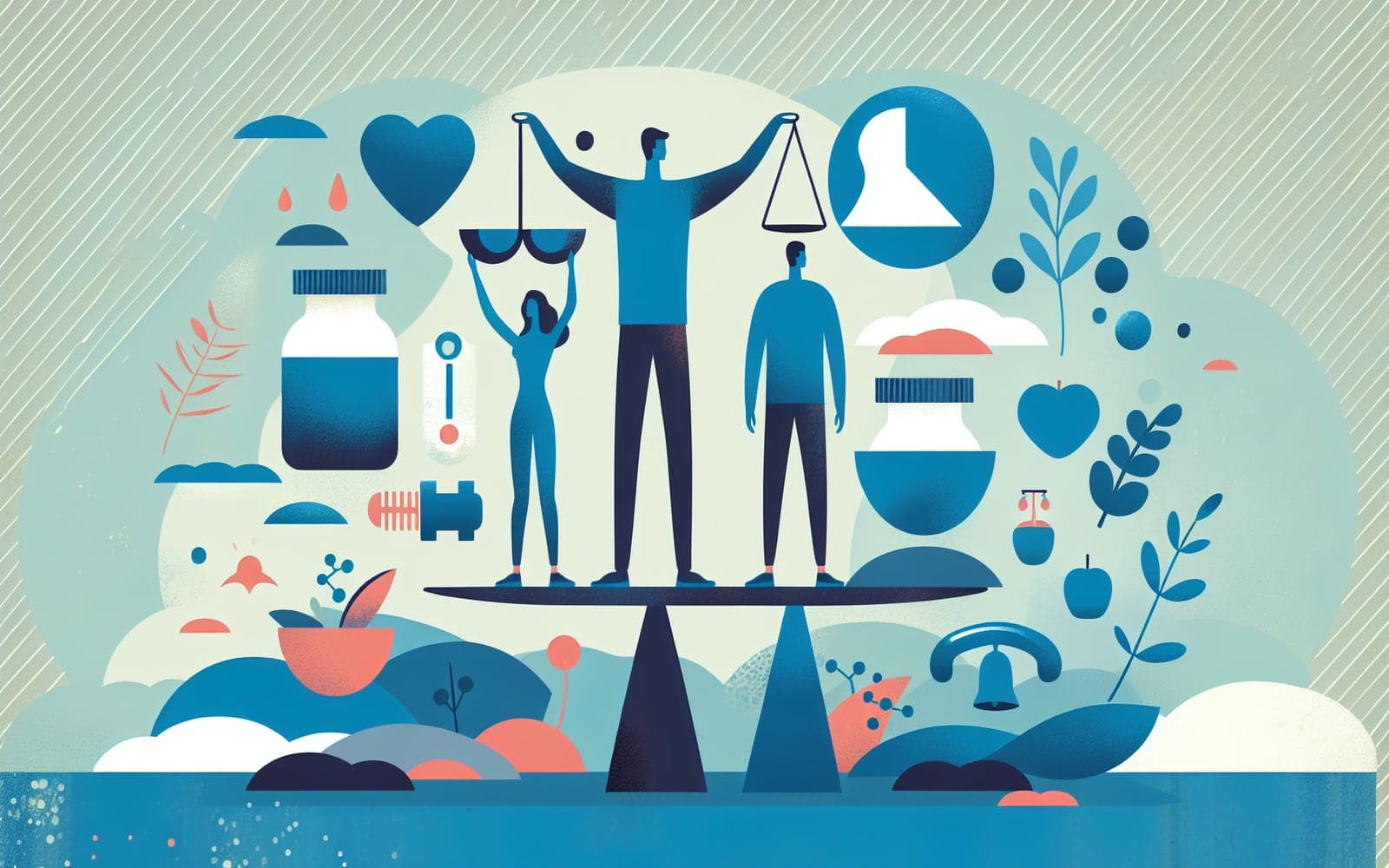Balancing Act: Guidelines for Healthy Iron Levels
Published: Jun 20, 2024
Maintaining proper iron balance is crucial for good health. These guidelines can help you ensure you're getting the right amount of iron for your body's needs.
Contents
Know Your Iron Needs
Iron requirements vary based on age, sex, and life stage. Adult men and postmenopausal women typically need about 8 mg per day. Premenopausal women need more, around 18 mg daily, due to iron loss during menstruation. Pregnant women may need up to 27 mg daily. Consult with a healthcare provider to determine your specific needs.
Dietary Sources of Iron
Iron comes in two forms: heme iron from animal sources and non-heme iron from plant sources. Heme iron is more easily absorbed. Good sources include lean meats, seafood, and poultry. Plant sources include beans, lentils, spinach, and fortified cereals. Pair non-heme iron sources with vitamin C-rich foods to enhance absorption.

Monitoring Iron Status
Regular check-ups can help detect iron imbalances early. Your doctor may recommend blood tests to check iron levels, especially if you're at risk for deficiency or overload. Common tests include serum ferritin, transferrin saturation, and complete blood count. Don't start iron supplements without consulting a healthcare provider.
Frequently Asked Questions
It's rare unless you have a genetic predisposition to iron overload.
Yes, they can inhibit iron absorption if consumed with meals.
No, they can be harmful if you don't need them.
It depends on your risk factors; consult your doctor.
Key Takeaways
By following these guidelines and working with your healthcare provider, you can maintain healthy iron levels and support your overall well-being.
Ready to optimize your iron intake? Chat with Doctronic about creating a personalized iron management plan.Related Articles
References
National Institutes of Health. Office of Dietary Supplements - Iron. https://ods.od.nih.gov/factsheets/Iron-HealthProfessional/
World Health Organization. Iron deficiency anaemia: assessment, prevention and control. A guide for programme managers. Geneva: World Health Organization; 2001.
Always discuss health information with your healthcare provider.

